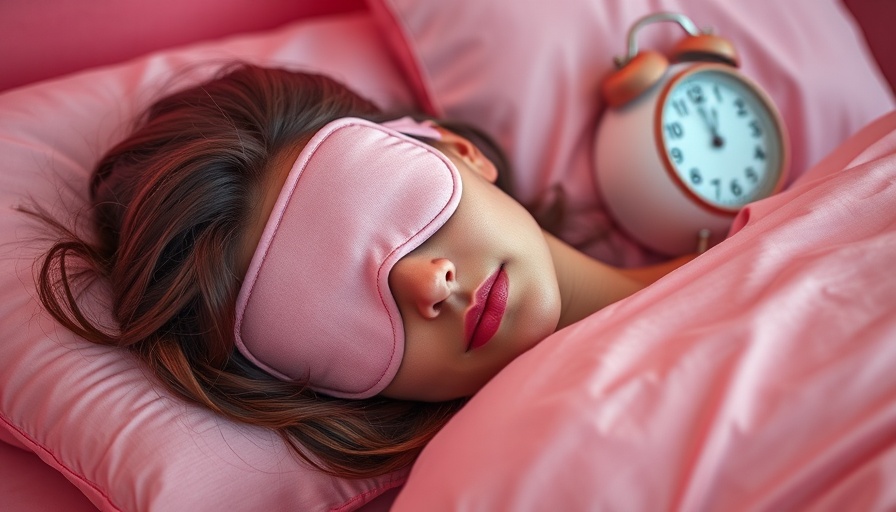
The Quest for Quality Sleep: A Double-Edged Sword
In a world increasingly focused on optimization, even our sleep patterns have fallen under intense scrutiny. The relentless pursuit of the "perfect sleep" could ironically be the very cause of insomnia for many adults. According to a recent survey by the American Academy of Sleep Medicine, a staggering 81% of Americans report losing sleep due to anxiety about their sleep quality, revealing a prevalent paradox.
The Rise of Sleep Maxxers
The term "sleep maxxers" has emerged to describe individuals who adhere to rigid routines, meticulously track every minute of rest, and strive for the elusive eight hours of sleep nightly. While the intent is to improve sleep, experts caution that these practices can backfire, leading to increased stress and anxiety. Dr. Anita Shelgikar, president-elect of the AASM, states, "Concerns about getting enough high-quality sleep can create a vicious cycle of stress and sleeplessness for many people." This paints a troubling picture where a healthy desire for good rest morphs into debilitating pressure.
Sleep Anxiety: The Dark Side of Tracking
The surge in sleep tracking could be part of the remedy—or a cause of further sleeplessness. Those overly focused on sleep data can develop a condition known as orthosomnia, which describes anxiety stemming from obsessively monitoring sleep metrics. "Sleep maximization can sometimes turn what should be a restorative process into a high-pressure task," warns Dr. Shelgikar. Rather than enhancing relaxation, endless tracking can cultivate a critical relationship with our nightly rest.
Effective Strategies for Embracing Rest
Instead of fixating on perfection, experts suggest that individuals focus on sustainable habits conducive to good sleep. The AASM provides a roadmap for fostering better sleep health:
- Create a Relaxing Environment: Ensure your bedroom is a sanctuary—dark, quiet, and cool—with comfortable bedding to promote restful nights.
- Practice Relaxation Techniques: Engage in deep breathing, meditation, or journaling before bed to calm the mind.
- Use Sleep Trackers Wisely: Treat sleep-tracking technology as a guide rather than a strict scorekeeper to avoid added stress.
- Seek Professional Help: If sleep-related anxiety persists, consider consulting a healthcare professional or sleep specialist.
The Mind Trap of Perfectionism
There exists a notable correlation between perfectionism and sleep anxiety, as discussed in an article from Psychology Today. Many individuals worry excessively about their performance after a night of poor sleep. This fear often magnifies the problem, making it more difficult to fall asleep. Anxiety about insufficient rest can evolve into a self-fulfilling prophecy.
Individual experiences highlight this struggle, with many people reporting that the endeavor to achieve 'perfect' sleep not only complicates their sleep routines but also influences their emotional and mental health. Being aware of and addressing perfectionistic tendencies is crucial for overcoming sleep anxiety.
The Essence of Healthy Sleep Routines
Understanding that perfect sleep doesn't truly exist can liberate us from the shackles of anxiety. Sleep therapist Katie Fischer emphasizes that good sleepers typically "do nothing" conscious to achieve sleep—they just let it come. Thus, instead of chasing arbitrary metrics, the goal should be to cultivate feelings of fatigue through consistent daily habits and recognition of bodily cues.
Practical Tips for Reducing Sleep Anxiety
What can you do to enhance your sleep routines without succumbing to anxiety-inducing perfectionism? Here are a few practical steps:
- Establish a Consistent Sleep Schedule: Go to bed and rise at the same time every day to regulate your body clock.
- Limit Screen Time Before Bed: Reduce exposure to blue light by cutting off electronics at least an hour before sleep.
- Create a Pre-Sleep Ritual: Develop a calming nightly routine to signal to your body that it's time to unwind.
Conclusion: Embrace the Journey to Rest
Upholding the notion of perfect sleep may be counterproductive to achieving quality rest. The journey to healthier sleep is about fostering understanding, creating sustainable habits, and embracing relaxation without fixation on data. Instead of aiming for unattainable standards, focus on nurturing a beneficial relationship with sleep for your overall well-being.
If you’re struggling with sleep or anxious about your sleep patterns, consider visiting the AASM’s sleep center directory to connect with accredited sleep specialists who can guide you on your path to better rest. Sleep shouldn’t be a source of anxiety but rather a cherished time for your body and mind to rejuvenate.
 Add Row
Add Row  Add
Add 




Write A Comment